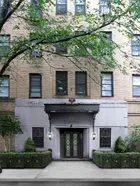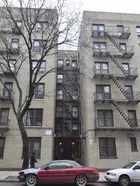Before a series of sweeping changes to rent laws in June 2019, New York City owners and management companies were free to ask tenants to pay first month’s rent and several months’ rent as a security deposit. In the case of foreign nationals, it was not uncommon for owners and management companies to ask for anywhere from three to 12 months' rent as a security deposit. As of 2020, this practice is no longer permitted; 2019's robust laws also ensure that tenants can more easily retrieve their security deposits when they move out and do so promptly.
Additionally, in late May 2020, former Governor Andrew Cuomo put into action The Renters Relief Plan, an executive order allowing renters to apply their security deposits towards the next month’s rent. Renters must either pay the security deposit back in full within 90 days or enroll in a low-cost monthly insurance plan for the remainder of the lease. The insurance plan would cover any damage to the apartment. These measures provided a sigh of relief for the city's large renting population at the height of the pandemic.
Additionally, in late May 2020, former Governor Andrew Cuomo put into action The Renters Relief Plan, an executive order allowing renters to apply their security deposits towards the next month’s rent. Renters must either pay the security deposit back in full within 90 days or enroll in a low-cost monthly insurance plan for the remainder of the lease. The insurance plan would cover any damage to the apartment. These measures provided a sigh of relief for the city's large renting population at the height of the pandemic.
At a time when Manhattan’s median rent comes to $5,291/month (per CityRealty listings), the security deposit is likely to be no small amount. A number of firms — Rhino, The Guarantors, and Insurent among them — have emerged to present an alternative, allowing renters to pay a small monthly fee to an insurance policy for the landlord that serves the same function as a security deposit.
Would-be renters appreciate the alternatives, and a growing number of landlords and building owners are adopting them; but for now, the security deposit still prevails in New York. This article outlines the current rules, regulations, and retrieval rights that now govern security deposits not only in New York City but throughout the state.
Would-be renters appreciate the alternatives, and a growing number of landlords and building owners are adopting them; but for now, the security deposit still prevails in New York. This article outlines the current rules, regulations, and retrieval rights that now govern security deposits not only in New York City but throughout the state.
In this article:
Why are security deposits necessary?
A security deposit is a sum of money provided by a prospective tenant to an owner or management company that is paid in addition to the first month’s rent. Theoretically, the security deposit, which owners are supposed to hold in an escrow account, is collected to ensure that owners will be able to cover any damage done to a unit during the tenancy without taking legal action.How much can owners ask for up front?
While owners and management companies were once free to ask for as much security as they liked, as of June 2019, New York State has placed strict regulations on the practice. Whether the unit is rent-regulated or not, the Housing Stability and Tenant Protection Act of 2019 clearly states, “No deposit or advance shall exceed the amount of one month’s rent.” This means that if you’re renting an apartment for $2,700, you can now only be asked to pay first month’s rent and an additional $2,700 as a security deposit.Notably, tenants can no longer be asked to pay the first and last month’s rent plus a security deposit. Some tenants blow off paying their last month's rent, assuming the security deposit can cover it, but this practice is frowned upon, and landlords in this case would be entitled to sue to cover damages to the apartment.
How and when are owners obliged to return a security deposit?
In the past, owners and management companies were only obliged to return deposits in a reasonable but unspecified timeframe and didn’t have to fully disclose why they weren’t returning a deposit or the full amount of a deposit. Since the passing of the Housing Stability and Tenant Protection Act of 2019, everything has changed and the changes do favor tenants. Highlights of the current law include the following:- Owners and management companies must return the security deposit in full. The only exceptions concern legitimate itemized costs due to “non-payment of rent, damage caused by the tenant beyond normal wear and tear, non-payment of utility charges payable directly to the landlord under the terms of the lease or tenancy, and moving and storage of the tenant’s belongings.”
- After an initial lease signing but before occupancy, tenants must be informed of their right to inspect their unit; if there is existing damage to the unit, a tenant has the right to have these articles detailed and upon vacating the unit, the owner or management company cannot charge the tenant for any pre-existing damage.
- When a tenant indicates they are terminating a lease, unless they have given less than two weeks’ notice, the owner or management company must inform them of their right to request an inspection before vacating the premises.
- The tenant has the right to be present at the inspection, which may not be “earlier than two weeks and no later than one week before the end of the tenancy.” The owner or management company must also provide at least forty-eight hours written notice of the inspection date.
- Following the inspection, the owner or management company must give the tenant an itemized statement detailing any repairs or cleaning that will result in a deduction from the tenant’s deposit. If the tenant can remedy the problems on their own, they have the right to do so.
- Most notably, within fourteen days of a tenant vacating a unit, the owner or management company must return the tenant’s security deposit and provide the tenant with an itemized statement indicating why any monies have been withheld.
If I paid several months’ security upfront, can I get it back before moving out?
As already noted, before the sweeping legislative changes approved in 2019, some owners and management companies were in the habit of asking tenants to pay several months’ rent as a security deposit before taking possession of an apartment. In most cases, these requests were made when the prospective tenant lacked an established credit or rental history. As a result, new renters—for example, recent graduates and foreign nationals—were especially likely to be asked to come up with anywhere from three to 12 month’s rent as a security deposit. Now that it is illegal for owners and management companies to ask for several month’s rent upfront as a security deposit, there is some ambiguity about the status of these excessively large deposits.Some local management companies are reportedly informing tenants that they can request to have their excess security deposits returned or use them to pay any remaining rent once they indicate their intention to terminate a current lease. However, to date, such notices appear to be arriving from owners and management companies on a voluntary basis. What is clear is that if you’re a tenant who was asked to pay several months’ rent upfront as a security deposit, getting back your large deposit, which may be worth well over $10,000, will now be much easier than it was in the past.
{{error}}
More No Fee Rental Deals
-
Leasing Updates
-
Sven brings eco-friendly rentals with flexible lease terms and $1,000 deposits to Long Island City
-
1998 Second Avenue readies to rent luxury apartments from $2,400/month + 16 great new Manhattan rental listings
-
Rent-stabilized apartments are poised to get pricier + See 16 available stabilized listings
-
- Grand Opening View All
-
Free Rent
-
Victoria Tower Residences: Harlem's tallest offering free rent this December and one month free on 13-month lease
-
Ruby is leasing biophilic Chelsea apartments with 1 month free rent; Explore MAG Partners' first NYC building
-
Gotham Point: Amenity-rich waterfront community is leasing with up to 3 months free rent + $2,000 move-in credit
-
-
Special Offers
-
Avalon Fort Greene offering discounts on select units; No-fee rentals from $2,845/month
-
Security Deposit Discounts at Beatrice Apartments in Chelsea; No Fee Rentals from $3,855/Month
-
Security Deposit Special at Jersey City's 70 Greene Street - Only $1,000 Required on Select Leases
-

Contributing Writer
Cait Etherington
Cait Etherington has over twenty years of experience working as a journalist and communications consultant. Her articles and reviews have been published in newspapers and magazines across the United States and internationally. An experienced financial writer, Cait is committed to exposing the human side of stories about contemporary business, banking and workplace relations. She also enjoys writing about trends, lifestyles and real estate in New York City where she lives with her family in a cozy apartment on the twentieth floor of a Manhattan high rise.







 6sqft delivers the latest on real estate, architecture, and design, straight from New York City.
6sqft delivers the latest on real estate, architecture, and design, straight from New York City.
